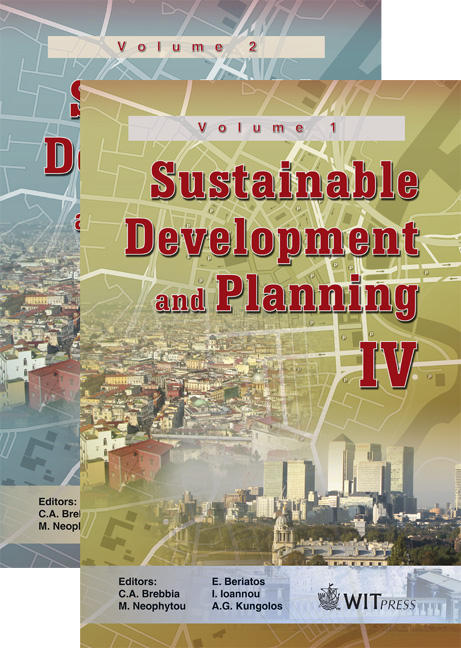Evaluating Street Cleaning Operations For Sustainability: The Case Of Osun State, Nigeria
Price
Free (open access)
Transaction
Volume
120
Pages
9
Page Range
233 - 241
Published
2009
Size
223 kb
Paper DOI
10.2495/SDP090231
Copyright
WIT Press
Author(s)
S. A. Okanlawon, A. O. Afon, F. O. Adigun & O. O. Odunola
Abstract
This study evaluated street cleaning operations in Osun State, Nigeria. Data for the study were obtained from the street cleaners and residents through the administration of questionnaires. The study revealed that the cleaners were poorly paid, lacked job security and access to medical care, were poorly equipped and had no insurance policy cover. Waste generated from street cleaning operations was poorly managed; cleaners therefore adopted disposal methods that were not sanitary. Cleaners were exposed to hazards such as insect stings, offensive sights and odours, snakebites and automobile accidents. Residents perceived that the street cleaning operation had brought tremendous improvement to the sanitation conditions of selected roads; however, they were not ready to pay service charges. The study concluded that for the street cleaning operation to be sustainable, the working conditions of the cleaners and equipment provision must be substantially improved; and residents’ perception of street cleaning operations as a social service changed. Keywords: street cleaning, residents’ satisfaction index, willingness to pay, waste disposal methods, hazards and risks, street cleaning equipment, street cleaners, residents’ perception, environmental sanitation, sustainability. 1 Introduction City environments, especially in developing nations, are characterized by a plethora of problems. Of importance among these problems is the unsanitary condition of the environment in which we work and live. Roads, as a city system, are not immune from the problem as they are littered [1]. Three types of negative impacts are associated with this poor environmental condition of roads, and according to Arafat et al [2], none of these impacts is easily quantifiable. First is
Keywords
street cleaning, residents’ satisfaction index, willingness to pay, waste disposal methods, hazards and risks, street cleaning equipment, street cleaners, residents’ perception, environmental sanitation, sustainability.





